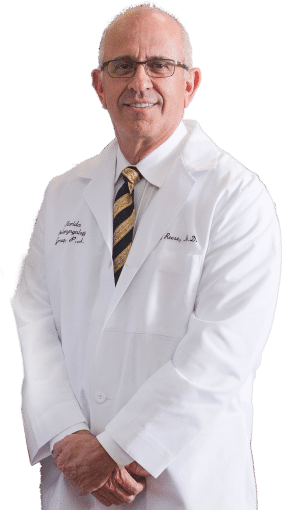If you or one of your family members is suffering from hearing loss, consulting with a qualified medical professional is an important first step to obtaining appropriate care and treatment. One of the difficulties with having hearing loss treated is in trying to figure out which hearing specialist you need to book an appointment with as there are several experts who may be able to address your specific concerns. To help you determine which specialist to book a consultation with, we’ve compiled a list of each professional, their specific roles, and reasons to visit them.
The Role of an Audiologist & Reasons to See Them
An audiologist is a medical professional that specializes in treating hearing loss. They have extensive education and training within the diagnostic fields needed to test, identify, evaluate, and measure hearing loss or related disorders such as tinnitus or vertigo. An audiologist’s certification will either be a master’s degree, a clinical doctorate, or a research-based doctorate in audiology from an accredited post-secondary institution. They may choose to specialize in specific areas of treatment or research, such as: balance disorders, cochlear implants, hearing aids, or pediatrics. If they are able to dispense hearing devices, they will have an additional license to do so.
What Are the Reasons to See Them?
- You have experienced changes in your hearing (decreased/fuzzy) or a member of your household has expressed changes in their hearing or chronic problems with their hearing.
- You would like to purchase hearing aids or receive a consultation for assistive hearing devices.
- You require your assistive hearing device to be programmed, or you need routine maintenance done.
- You have concerns that your child has diminished hearing. You would need to seek out a pediatric audiologist.
- You are experiencing balance problems or a ringing in your ears (tinnitus).
- You need cochlear implant programming, maintenance, or aftercare for bone-anchored hearing systems.
The Role of a Hearing Instrument Specialist & When You Should See Them
A hearing instrument specialist is a licensed medical professional that works with adults in evaluating hearing problems and providing the right hearing solutions. They will help you select the right hearing aid for your hearing problem that fits within your budget and lifestyle, and will fit them for you. They mostly deal with common types of hearing problems, notably age-related hearing loss or noise-induced hearing loss.
What Are the Reasons to See Them?
- You have noticed changes in your hearing and are an adult.
- You need to purchase hearing aids and have them fitted.
- You need to undergo a routine hearing test to evaluate your hearing problem.
- You need your existing hearing aids programmed.
- You need maintenance done to your hearing aids.
The Role of An Otolaryngologist or Otologist & When to Book With Them
This is a nose, ear, and throat specialist (ENT) that is trained in managing diseases and disorders for the structures of the head, neck, and facial area. They can provide you with both medical treatment options and surgical options, and offer a wide range of services for hearing loss, balance disorders, cranial nerve disorders, congenital disorders, and ear infections. To sit on the board of American Otolaryngologists as a certified ENT specialist, you must undergo 4 years of college education, 4 years of medical school, and a 5-year residency within an otolaryngology department.
An otologist is a bit different from an otolaryngologist, in that they are a physician specialist that focuses more on the ears specifically and their related structures. Once graduating from medical school, an otologist will complete specialized training that allows them to treat diseases and disorders of the ears, balance system, and base of the skull, either with medicine or with surgical options.
Reasons to See an Otolaryngologist or Otologist?
- You are experiencing ear pain, middle ear infections, or ear discharge.
- You have balance problems.
- You have ringing in the ears (tinnitus).
- You need surgery on your head or neck (cochlear implant surgery qualifies).
- You have concerns about throat, head, neck, or sinus issues.
If you visit one of these professionals for changes in your hearing, they may direct you to an audiologist or a hearing instrument specialist instead. If you have concerns over your child’s hearing, they may also redirect you to a pediatric audiologist.
The Role of a Neurotologist?
These individuals are highly specialized in the surgical intervention of hearing disorders that cause problems at the base of the skull or deep within your temporal bone. They often work with neurosurgeons to correct disorders or diseases that impact the cranial nerves. You would consult with a neurotologist if you need surgery to correct a complex hearing/balance issue that originates from within the brain.
The Role of an Educational Audiologist?
The role of an educational audiologist is to work with children who may miss out on educational opportunities due to hearing problems. These individuals are trained to help children receive the same educational opportunities as their hearing peers by identifying the severity of the child’ hearing loss and the impact it will have/has on their learning capabilities. They often work within a team of audiologists to formulate an Individualized Education Program (IEP) for the student so that they can receive support in the classroom. They also counsel parents and teachers on the child’s unique hearing loss needs, and they may provide educational training to school populations and faculty about hearing loss.
Reasons to see them include:
- Developing an education program for your child after being diagnosed with hearing loss and receiving assistive devices.
- Helping your child accept and manage their hearing loss.
- Receiving support for your child within the school system.
It is critical that if you, a family member, or your child are suffering from hearing loss, that you reach out to the specialist that best suits your problem and schedule a consultation. Hearing is a complex issue that requires uniquely trained and qualified medical professionals for identification, evaluation, and resolution.





